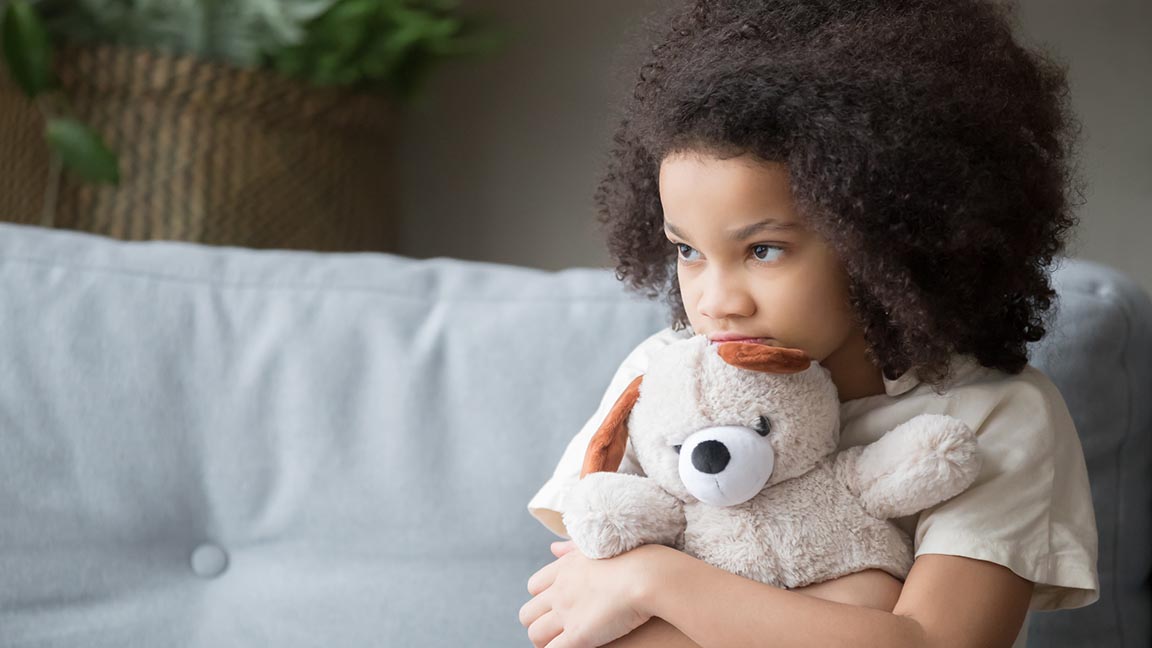For children navigating school, social lives and a lot of change, worrying is a part of life. So how can you distinguish normal nerves from symptoms of an anxiety disorder?
First, some context: Experts have been raising the alarm on children’s mental health for years. Suicide is the second-leading cause of death among teenagers and young adults. Teenage girls, in particular, are experiencing record-high levels of sadness and suicide. Almost 10 percent of children between 3-17 in the U.S. had been diagnosed with anxiety problems or depression in 2020 — an increase over the previous five years.
“Those are sobering statistics,” says Dr. Jill Aiken, a pediatrician at Tidelands Health Pediatrics in Myrtle Beach.
Many pressures
The COVID-19 pandemic didn’t help anything, but children and teenagers today were already under more pressure in the years leading up to it.
They feel the need to meet high expectations and be competitive with their peers. They’re living in a world where violence in schools and other public places is a real concern. And many of them are constantly connected to social media, which can amplify negative feelings or thoughts they’re already having.
“The COVID-19 pandemic basically unmasked a problem that was already beginning to boil over,” Dr. Aiken says. “The pandemic made it clear to everyone this is a national emergency.”
Not every kid who gets worried has an anxiety disorder. The key, Dr. Aiken says, is whether a child can be soothed or whether they can’t stop catastrophizing. It’s the difference between a teenager being nervous about a driving test, for example, and being convinced they’re going to wreck the car.
“It’s when a realistic, everyday thing that we all have to do becomes a huge thing,” Dr. Aiken says. “You can’t talk to them, and you can’t make them calm down about it. You can’t de-escalate.”
If you think your child may be struggling with anxiety, don’t hesitate to talk to the child’s pediatrician or other qualified provider. Here are some signs they could be dealing with more-than-normal nervousness:
Recurring fears or worries
Recurring fears or worries about routine parts of life such as going to the doctor or school can be a sign that your child needs help. Like Dr. Aiken says, it becomes a concern when nerves cross over into a belief the worst is going to happen and there won’t be any way to fix it. Often, the fear centers around losing control or social competence.
Changes in behavior
When a normally outgoing child becomes more withdrawn or when a normally easygoing child becomes irritable, it can be a sign that something else is going on. Children with anxiety disorders can appear overly restrained or overly emotional. They could come off as shy or uneasy.
Avoidant behavior
Not wanting to go to school or participate in social activities can be a big red flag, Dr. Aiken says — especially if the avoidance comes out of the blue. It goes back to the idea that routine parts of life can be difficult for children with anxiety disorders. They also may be resistant to trying new things or appear to be more dependent on others.
Trouble sleeping or concentrating
Children who can’t fall asleep or stay asleep or who appear like they can’t focus on a task at hand could be experiencing anxiety. They could be too preoccupied with their worries to sleep well or pay attention to what’s in front of them. Their grades might suddenly drop as a result.
Chronic physical complaints
Children with anxiety disorders often also experience physical symptoms. Keep an eye out for fatigue, stomach aches, muscle tension or pain in the back and limbs. Children may also also appear flushed or sweaty or experience shortness of breath.
Risky behavior
Substance use or impulsive sexual behavior can also be a sign that something is wrong. Children may take risks in an attempt to diminish or deny their fears and worries.
“If you have concerns about your child’s anxiety levels, please don’t hesitate to reach out to your pediatrician for help,” Dr. Aiken says. “We are here to listen to your concerns and get your child any help that may be needed.”

Dr. Jill Aiken
Pediatrician, Tidelands Health Pediatrics
Bio
Dr. Jill Aiken, a board-certified pediatrician, practices at Tidelands Health Pediatrics in Myrtle Beach.
Learn MoreMedical Education
Education
Wofford College
Medical University of South Carolina
Residency
Medical University of South Carolina, Pediatrics
Meet the Expert
Dr. Jill Aiken
Dr. Jill Aiken, a board-certified pediatrician, practices at Tidelands Health Pediatrics in Myrtle Beach.






